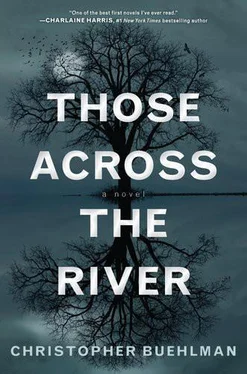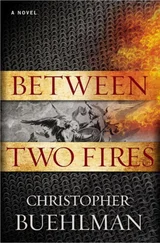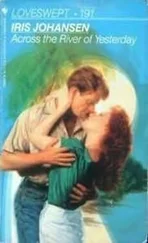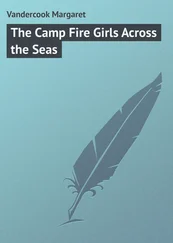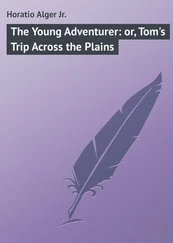“Well, Blake, let’s get on it, Joe said. I couldn’t make my feet move. I said I didn’t know about this no more. Miles screamed that is him, and I mean screamed it. What is this shit? Joe said. Did you see the way them dogs done?
“What are you gonna do? I said, Put the dog’s paw on the Good Book an make it swear? That’s why they ain’t gonna be no trial, he said, but we all know this is the one done it, an if you ain’t got the backbone to follow through, then the hell with you. I didn’t say nothin, so he kept on, callin me a damn fool, sayin why don’t I go back to my hardware store an polish my shovels.
“So I did leave.
“I walked all the way back to town an nobody who saw me comin stopped me to ask what happened. I locked myself in the store and cried til it felt like there was nothing left a me but peel. I know they hung that boy. And I know something went bad wrong. And they ain’t never gonna tell me what. An they ain’t comin back.”
I SAW THE men from Morgan leave.
Eudora and I had been sitting, holding each other on a bench in the town square. The sun was almost down now and the frogs and locusts took up their nightly chorus, but it was not a serenade. There was no love in it. It sounded terribly neutral. It was a sound that would go on unaffected by human grief or joy and, while it was possible to hear God in it, it was equally possible to hear His absence. The boy’s funeral would be tomorrow. No waiting around in this kind of heat. And there would be no school.
We had bumped around town all day, now at the drugstore, now at Pastor Lyndon’s house, now at the general store. She had pulled me home to make love around dinnertime, but we had not lain together long before we dressed again and came to the town square to escape the silence of the house. But it was quiet here, too, except for the locusts, and now the frogs, joining together in their agnostic hymn.
Just before we left the bench, realizing now the futility of paddling at the growing horde of mosquitoes, we saw the sheriff from Morgan and his men come up from behind us. They went around us, crossing the square towards their waiting vehicles. They walked with small steps and the ones who carried shotguns carried them like yokes. The sheriff, the one they called Big Joe, croaked “Evening” at Eudora and he would have removed his hat if he had not already been holding it. Most of them carried their hats.
The sky glowed red and orange in the west when the men started their cars. How small and pale their faces looked behind the glass. Delicacies in a gourmet butcher shop.
The color of pâté.
I never saw them again, even when things got worse.
DORA COULD NOT stand still. She paced the bedroom in her nightgown, running her hands through her hair while I sat propped up in bed.
Estel had left an hour before, staggering off down the road a little lighter for the actual poison he had ingested and the figurative poison he had disgorged; Dora had been percolating the whole time since. Now it bubbled up and out of her.
“Maybe it was the right man, but it makes me sick that they had no trial. Nothing. Somebody points a finger and that’s it.”
“I know,” I said.
“He was such a sweet boy, too. Tyson, I mean. Oh my God, my God, I just want to pull my skin off every time I think about his poor, sweet, freckled face. He wasn’t one of mine, but I met him. Did you know him, Frankie?”
“He played baseball with us that first weekend.”
“He had freckles,” she said simply, and then something else too low for me to hear.
I asked her what.
“I said I hate it here.”
THE DREAM DID not come until almost morning.
It started in the trench.
I was slogging through ankle-deep mud in the earthworks at the head of a column of soldiers. Ochre mud. Milky. Sky the color of pewter. When the column stopped marching I found that I was in a place where the trench was shallow and I could look across the mud and wire wilderness that lay between the allied defenses and those of the Germans. Barbed wire coiled out laterally to both horizons, and I could feel rather than see the Huns crouched in their trenches, slateeyed behind machine guns, gloved fingers sweating at the triggers.
I noticed a figure caught on the wire almost exactly in the middle of no-man’s-land, but too far out for me to tell what uniform it wore; all I could see was the whiteness of its face as it struggled to free itself. I clambered up the loose wall of the trench meaning to free the trapped soldier, and the other men clutched at my coat and trousers to stop me. They slowed me down, but I pulled their hands open and kicked at them until at last I was able to hoist my knee and hips up and scoot, sliming myself with mud. I got to my feet and began walking towards the figure pinned on the wire. The silence bewildered me. Why were the Huns not firing?
I knew they were there, their breath steaming in the cold over their weapons, ready to send a rosary of lead that could make whole companies kneel. Ready to shred me like cheap pork with just one throaty pop from an anti-tank gun. But it did not come. I saw now that the squirming figure was German. It wore the grey. I saw the point on the helmet, outdated now, just the kind of thing you saw on posters, and the proud boots, somehow black despite the deep mud. The figure stopped struggling when it saw me approach and reclined in the coils of the wire as if on a couch. When I came to the first loops of wire I stepped through them. They caught at my clothes but could not hold me fast. I stepped decisively, and kept stepping, unmindful of the wire that nipped at me. The French and British always said the Yanks had a talent for getting through wire, and this was how it was done.
Now I could see the face of the German. I had thought that it would be the face of the boy from the trench fight, that this would be my chance to save him, that I would pull him free and carry him back to the German line on my shoulders, and the Huns would be so moved by my gallantry that they would cheer me, pass me their tin flasks of brandy and schnapps to drink from, shake my hand, pat my shoulders. Their greatest gift, of course, would be not to shoot me through the back as I left.
The dream remade itself then. It was not the German boy trapped on the wire; it was not a boy at all. It was Dora’s face beneath the helmet. Dora’s mismatched eyes. I was upon her now, standing over her. She tilted back her head so the helmet fell off, freeing her bob of honey-colored hair. The redness of her mouth beckoned like a pomegranate and I tasted it.
The chill in the damp air receded and it became a warm dream, all kissing; I kissed the woman on the wire and snuggled in with her so I was trapped, too, hopelessly so, but it did not matter. All that mattered was the warmth and wetness of the kissing, the contact of our mouths, that the war might in fact end with this kiss, the feel of her tongue, her long tongue that pointed delicately, I loved to watch her lick stamps, taste ice cream, catch a drop of coffee running down the side of the cup, her mouth on mine in our different uniforms, bring the Kaiser to see it, bring Pershing on a stretcher, God and Jesus, her perfect tongue and Gabriel in the clouds above it all with a horn, a ram’s horn tipped with gold, the music of the Hebrews, the kind that cracked Jericho, so now the horn sounded and the seams of the clouds split and lilies fell in a damp and lovely snow until everything was covered.
When I woke, the woman I called my wife had me in her mouth, had held me so for some time now. How like a Sphinx in her nightgown. Her hand working below her lips. Her eyes flashed up at me and the clouds split. And everything fell in a slow hail of petals.
Читать дальше
